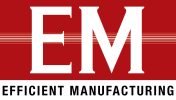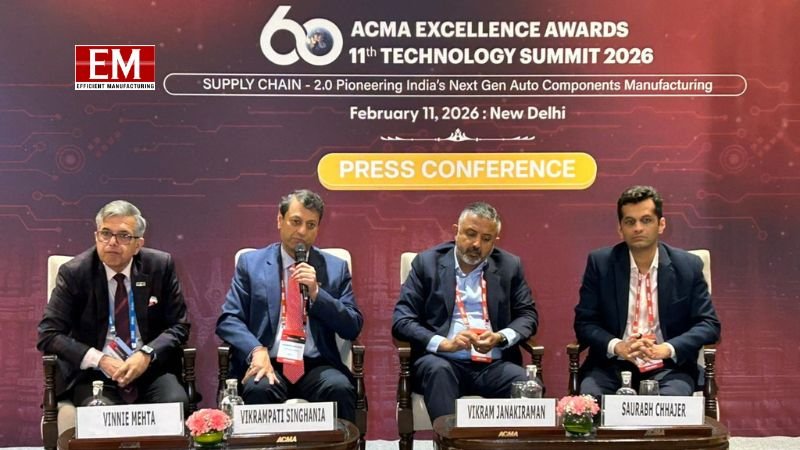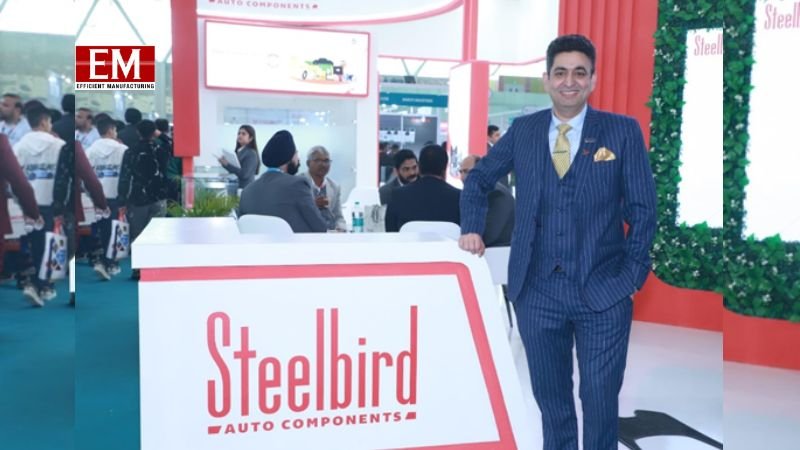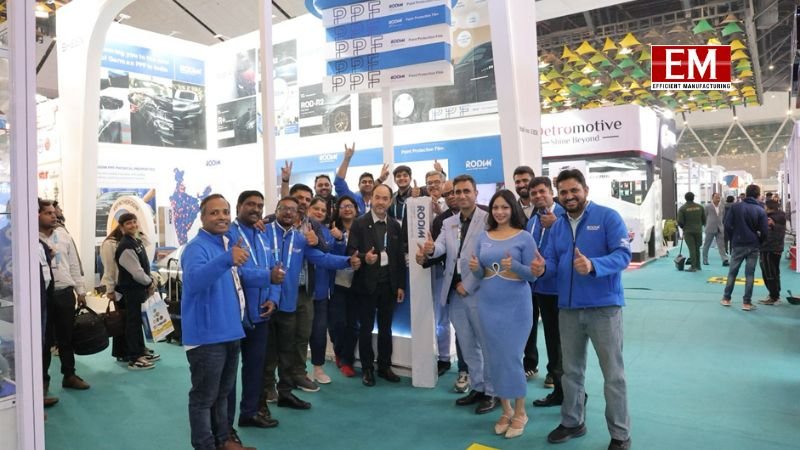In an era where the architecture and construction industry are rapidly embracing customisation, sustainability, and smart technologies, Schon Doorways has emerged as a leading force redefining aluminium fenestration manufacturing in India. In this exclusive conversation, Mr. Ajay Balakrishna, Founder & CEO of Schon Doorways, shares with Kaushal Dighavkar how the company’s fully integrated in-house manufacturing ecosystem not only accelerates product development cycles but also reduces reliance on imports and third-party vendors. He delves into the company’s adaptive strategies for design complexity, circular aluminium practices, real-time data transparency, and skill development, while offering a forward-looking vision of smart manufacturing poised to shape the future of the fenestration industry.
1. How does the Schon Doorways manufacturing ecosystem influence product development cycles and reduce industry dependence on imports or third-party vendors?
At Schon Doorways, from a very early stage, we have decided to invest in a fully integrated, in-house manufacturing system. By extruding, fabricating, powder coating, and assembling all in-house, we have reduced the product development cycle upto a great extent. This has also enabled us to bring new designs to life quicker, thereby ensuring quality control, and decrease dependency on third-party vendors or imported systems. Our in-house capabilities enable us to respond to client demands quickly, perform customisation on a larger scale, and innovate on the market’s pace instead of relying on external supply chains, also promoting the Make in India initiative of the government.
2. With increasing demand for customisation in architecture, how has your production process adapted to meet design complexity without compromising timelines or consistency?
Customisation is not a luxury, we believe it’s a requirement these days. To meet the clients demand, we’ve overhauled our manufacturing lines through modular processes, where batch customisation doesn’t impact the flow or delivery timelines. Every project progresses through bespoke CAD prototyping, computer-manufacturing configurations, and a multi-layered quality control system that guarantees even the most intricate designs preserve consistency of finish, performance, and installation deadlines. We advocate for customisation to speed up, not slow down, the manufacturing process—and our processes are designed to facilitate the same.
3. Can you walk us through how your facility contributes to circular manufacturing practices, particularly in the context of aluminium usage?
Sustainability is integral to our operations. Our plant is structured on circular manufacturing principles where aluminium scrap produced during manufacturing is collected systematically, recycled, and fed back into the manufacturing process. In fact, much of the aluminium we consume today is from eco-certified recycled sources. Additionally, our powder-coating process is low-emission and our production scheduling reduces wastage in terms of material, energy, and time. At Schon, we make sure that we look at every off-cut, every scrap, as an asset, not waste.
4. What role do real-time data and digital interfaces play in enhancing transparency and operational accuracy across your manufacturing lifecycle?
Real-time data is the core of our manufacturing intelligence. From monitoring extrusion parameters to quality checks and end dispatch, digital interfaces track, authenticate, and report each process step. This transparency makes possible the identification of deviations ahead of time, real-time optimisation of the production schedule, and active consultation with clients about project development. Internally, it allows us to have no room for error, has maximal operational efficiency, and enables us to hold ourselves accountable to what we aim for.
5. How does your team structure and training model serve as a blueprint for skill development within India’s precision manufacturing sector?
Manufacturing excellence starts with people. We’ve built a tiered training model where new recruits undergo hands-on technical training, shadow experienced mentors, and participate in continuous learning programs on the latest aluminium fenestration technologies. By emphasising technical competence and quality attitude, we are creating a new generation of capable workers prepared for precision manufacturing and establishing a replicable model for the wider industry. We are not only looking to produce great products, but great manufacturers.
6. How do you envision the next phase of smart manufacturing evolving in the fenestration industry, and what proactive steps are you taking to stay ahead of that curve?
Smart manufacturing is no longer a choice, it’s a certainty. In the next 5–10 years, the fenestration industry will experience greater integration of AI for predictive maintenance, IoT-based product tracking, tailored automation for batch production, and green manufacturing technologies aligned with net-zero goals. Schon Doorways is already investing in CNC automation, robotic precision systems, and intelligent locking solutions integrated into aluminium systems. We’re not only future-proofing our products, but also our processes, because we think that tomorrow’s customers will require products that are smarter, greener, and delivered quicker than ever before. We aim to be ahead of the curve—not only by adjusting for the future, but by creating it.












